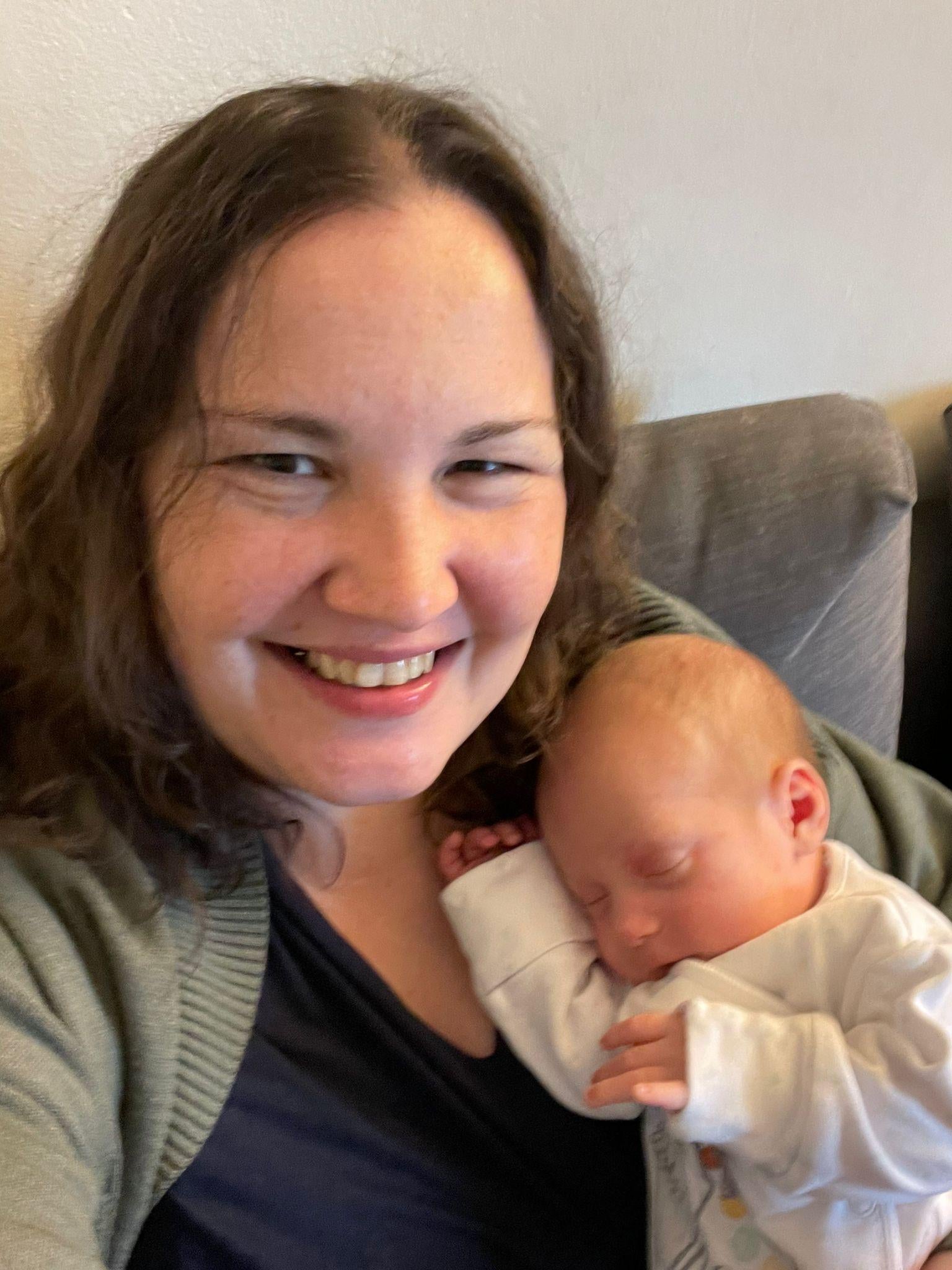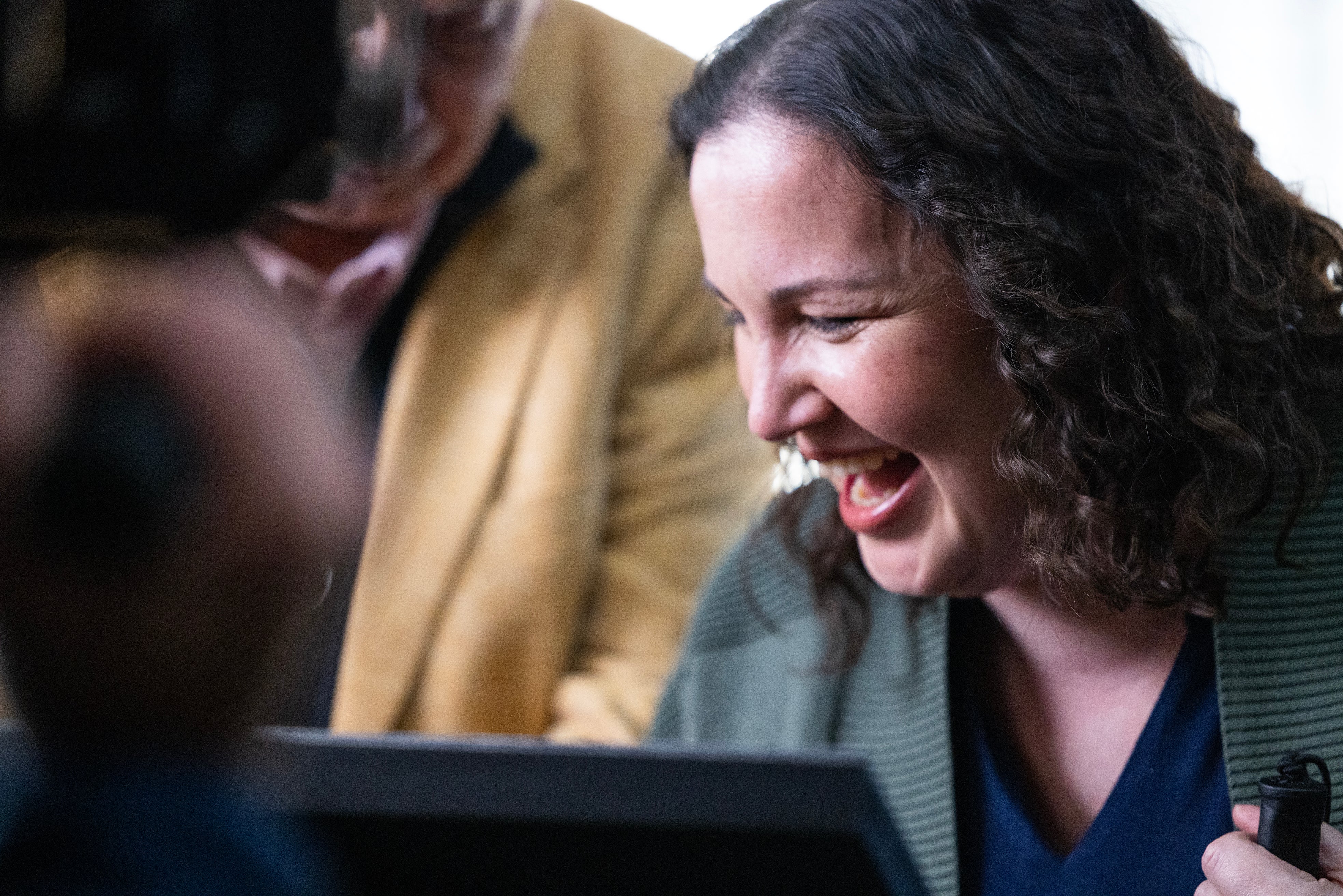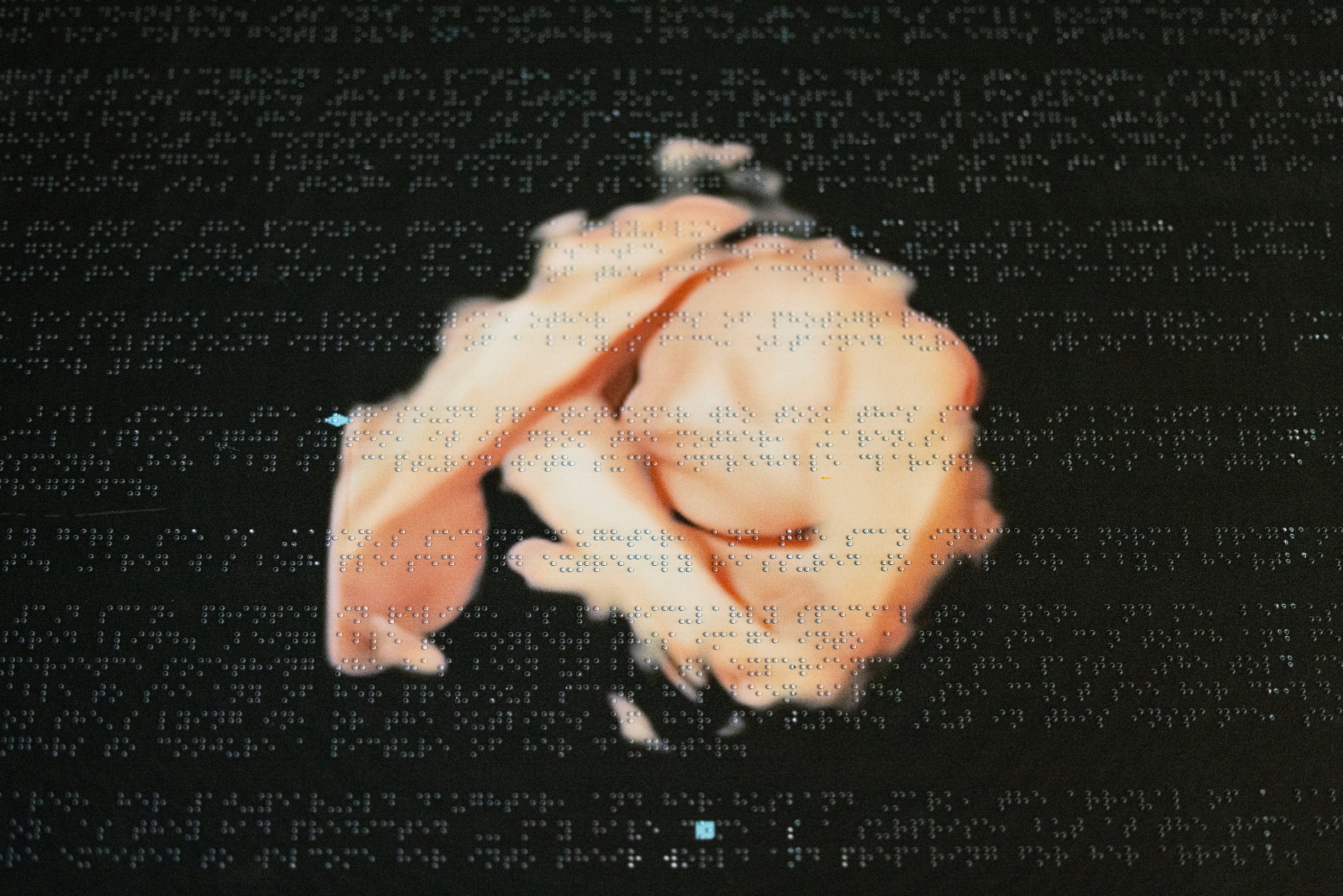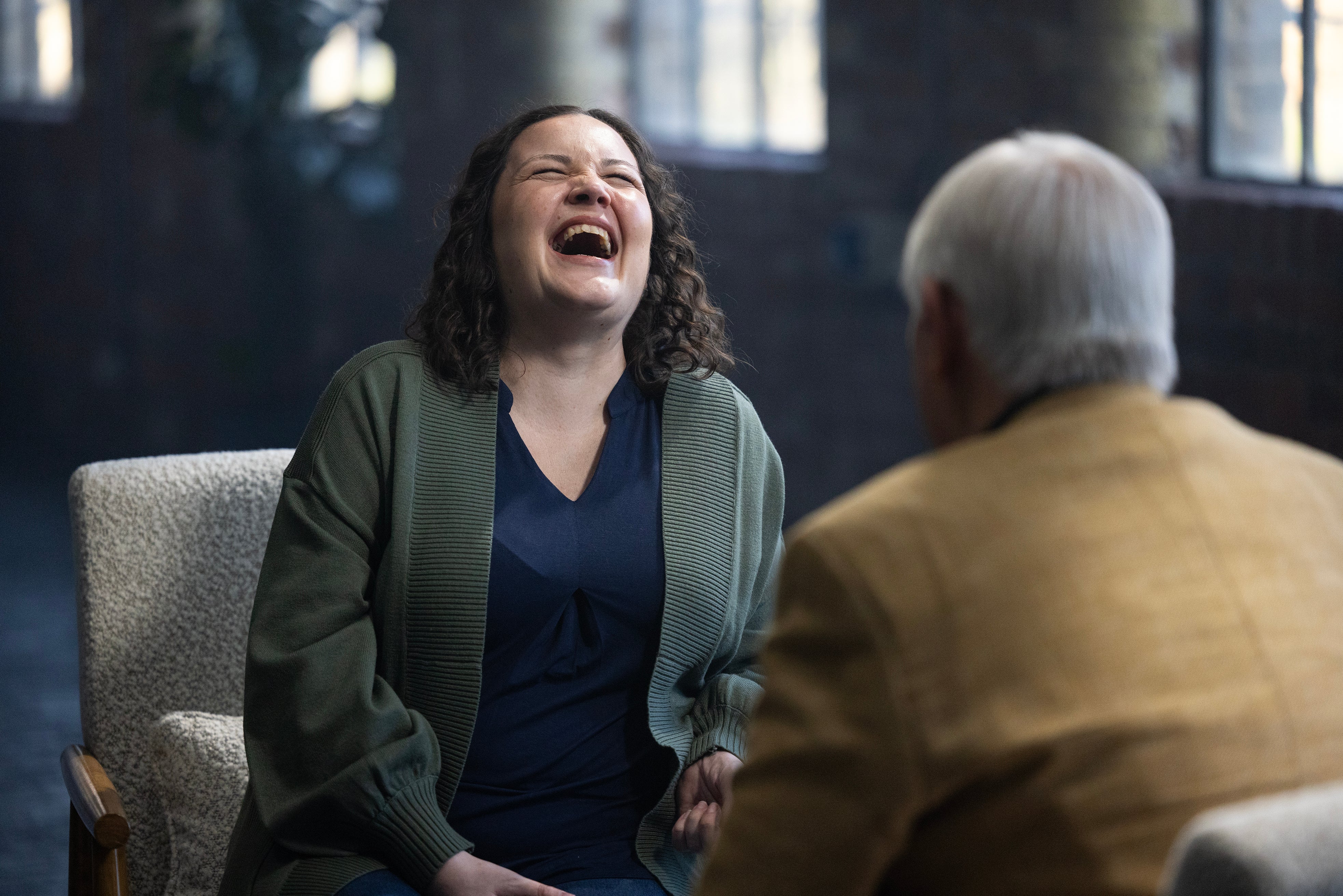Visually impaired woman’s joy after being able to ‘see’ baby scan for first time
The mother says the groundbreaking scan technology has helped her connect with her newborns in ways she never thought possible

Your support helps us to tell the story
From reproductive rights to climate change to Big Tech, The Independent is on the ground when the story is developing. Whether it's investigating the financials of Elon Musk's pro-Trump PAC or producing our latest documentary, 'The A Word', which shines a light on the American women fighting for reproductive rights, we know how important it is to parse out the facts from the messaging.
At such a critical moment in US history, we need reporters on the ground. Your donation allows us to keep sending journalists to speak to both sides of the story.
The Independent is trusted by Americans across the entire political spectrum. And unlike many other quality news outlets, we choose not to lock Americans out of our reporting and analysis with paywalls. We believe quality journalism should be available to everyone, paid for by those who can afford it.
Your support makes all the difference.A visually impaired woman has shared her elation after ‘seeing’ her baby scan for the first time.
Karen Trippass grew up with a rare disorder called cat-eye syndrome leading her vision to deteriorate over time.
The 44 year-old from Egham, Surrey, had her first child Phoebe through IVF a decade ago but felt alienated by medical staff due to her impairment.

A decade on, she and her husband Mark, 43, decided they wanted a child and had successful IVF treatment in Athens, Greece.
At 30 weeks, Bill Smith, a specialist ultrasound practitioner, invited the expecting mother for a scan, but she had no idea the surprise that was in store for her, she explained.
The mother could miraculously ‘see’ her unborn baby due to scanning photography developed by camera company Canon, that uses elevating printing so people who struggle with their sight can ‘feel’ photographs.
Ms Trippass was able to picture a clear image of her child’s face by reading Dr Smith’s braille description and feeling the elevated scan print, which provides a tactile experience so the mother could feel an outline of her daughter lying in her womb.

She told the Independent: “It was amazing, I was so shocked and overwhelmed. I got the same experience as everyone else.”
“I felt I could connect with her a lot better, when I had my first daughter I suffered with antenatal depression, I had had this technology, I might not have had that.
“I could feel her moving, it was exciting, one of the first things I said was she has her dad’s nose- and she does.”
Ms Trippass says her experience of pregnancy this time round has been remarkably different than a decade ago. She says hospital staff assumed she could not care for her child.
Now, the evolution of attitude is reflected in astounding technological breakthroughs, the mother explained.

“This time my vision impairment wasn’t mentioned once, unless it was ‘how can I help you?’,” she added.
Ruby Trippass was born three weeks early on 4 February 2024 through a C-Section and weighed 6lb4oz.
When she held her daughter for the first time, her face already felt familiar after the accessible scan and the mother confirmed she had her father’s nose.
Ms Trippass explained how as a disabled mother she faces a lot of common misconceptions, she uses a cane to get around, and strangers often assume her 10-year-old daughter is her carer and do not think she is capable of facing the challenges of motherhood.
“Peoples’ perceptions of what I can and can’t do are what holds me back, not my visual impairment,” she said. “People think I can’t look after my child, they ask how I’m going to feed them and how I know when they’re dirty- well I can smell, I can feel. “They will also speak to my husband instead of me.”
Speaking about the new scans, she said: “I just hope this changes people’s perceptions and hopefully one day scans are accessible for everybody.”
World Unseen, an exhibition of accessible photography produced in conjunction with the Royal National Institute of Blind People, is going on display at Somerset House in London in April.
Join our commenting forum
Join thought-provoking conversations, follow other Independent readers and see their replies
Comments